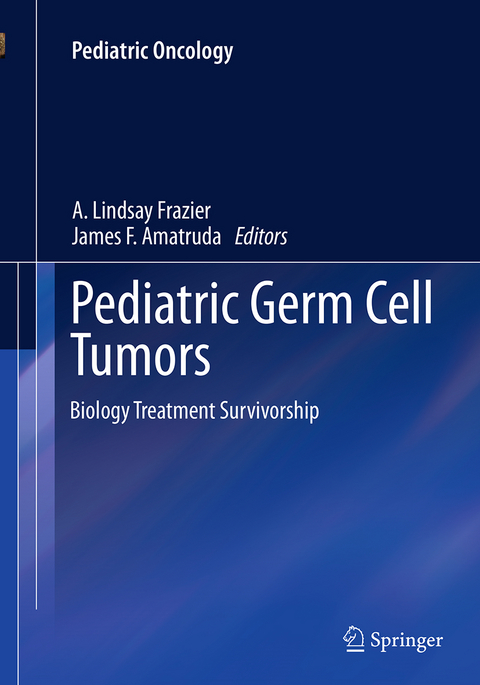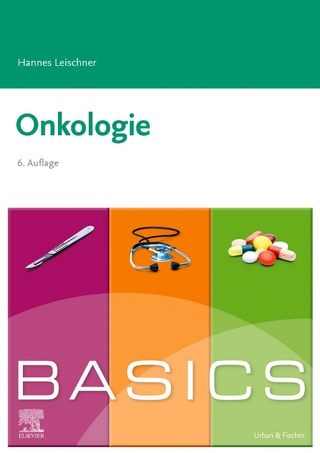
Pediatric Germ Cell Tumors
Springer Berlin (Verlag)
978-3-662-50749-0 (ISBN)
Germ cell tumors are relatively rare compared with other malignancies, and compilations of knowledge that encompass the entire spectrum of the disease are lacking. This textbook, written by the foremost authorities in the field, rectifies the situation by discussing in depth a broad range of topics, including biology, epidemiology, pathology, treatment, and late effects. Bearing in mind that germ cell tumors are most prevalent in the adolescent and young adult age group, causes of disease and treatment approaches in pediatric and adult patients are compared and contrasted. By spanning the entire life course, from prenatal origins of disease through to treatment in adults and late effects of treatment, the editors have produced a book that will be of interest to both pediatric and adult oncologists.
Dr. A. Lindsay Frazier, MD, received her MD from Dartmouth Medical School in 1984, followed by a pediatric residency at Children’s Hospital Boston and a pediatric hematology-oncology fellowship at DFCI, where she joined the faculty in 1990. She received a ScM from Harvard School of Public Health in 1993. In clinical practice, she concentrates on germ cell tumors. She has served on the steering committee of the Children’s’ Oncology Group’s (COG) germ cell committee since 1996. Since 2008, she has assumed overall leadership of the germ cell tumor committee at COG, which entails oversight of all current protocols and development of the strategic initiatives for future protocols across the spectrum of disease from low risk to high risk to salvage therapies. Interested in promoting the study of the biologic and epidemiologic origins of GCT, she has been instrumental in recruiting collaborators with these foci to join the COG steering committee. She spearheaded an international collaboration with the Children’s Cancer and Leukemia Group in the United Kingdom to combine their clinical datasets from the last 25 years constructing an international risk classification system that will serve as the basis for joint international clinical trials. Dr. James Amatruda is Assistant Professor of Pediatrics, Molecular Biology and Internal Medicine at The University of Texas Southwestern Medical Center, Dallas, Texas. He is the Horchow Family Endowed Scholar in Pediatrics at UT Southwestern and an Attending Physician in the Center for Cancer and Blood Disorders at Children’s Medical Center in Dallas, Texas. Dr. Amatruda received his undergraduate degree from Harvard University, and his M.D. and Ph.D. degrees from Washington University in St. Louis. He received further training in Internal Medicine at the Brigham and Women’s Hospital and in Medical Oncology at the Dana-Farber Cancer Institute, Boston. His post-doctoral training was with Dr. Leonard Zon at Children’s Hospital Boston focusing on the genetics of childhood cancer, before moving to the University of Texas in 2005. Dr. Amatruda’s laboratory focuses on the developmental biology of germ cells and stem cell signaling pathways in human germ cell tumors and in zebrafish genetic models, and is supported by several sources including R01 and R21 grants from NIH. He is the Chair of the national Rare Tumor Biology Committee in the Children’s Oncology Group, the national cooperative group that oversees all U.S. clinical trials in pediatric oncology. Dr. Amatruda is the principal organizer of an international meeting on Germ Cells, Stem Cells and Germ Cell Tumors scheduled for March 2011, in Dallas. As a member of the Rare Tumors steering committee at COG, he directly participates in the design and institution of clinical trials for childhood germ cell tumors and other rare tumors.
Biology of Germ Cell Tumors.-Epidemiology of Germ Cell Tumors.-Pathology of Germ Cell Tumors.-Clinical Treatment of Extracaranial Pediatric Germ Cell Tumors.-Clinical Treatment of Extracranial Pediatric Germ Cell Tumors.-Management of Disseminated Germ Cell Tumor in Adults.-Clinical Treatment of Adult Women with Ovarian Germ Cell Tumors.-Stromal Cell Tumors.-Late Effects of Treatment of Testicular Cancer and Implications for Pediatrics.
From the reviews:
"The authors wanted to capture practical management of all germ cell tumors. ... For medical students, this is a good resource on the entire germ cell story. For residents and fellows, it has sufficient scholarly detail to meet most needs. For research scientists, the clinical details are a good resource and the biological details and references will be helpful to provide background to stimulate investigation. ... a must have for any pediatric oncologist's library." (Clarke Paul Anderson, Doody's Book Reviews, April, 2014)| Erscheinungsdatum | 03.08.2016 |
|---|---|
| Reihe/Serie | Pediatric Oncology |
| Zusatzinfo | XII, 135 p. 51 illus., 49 illus. in color. |
| Verlagsort | Berlin |
| Sprache | englisch |
| Maße | 178 x 254 mm |
| Themenwelt | Medizin / Pharmazie ► Medizinische Fachgebiete ► Onkologie |
| Medizin / Pharmazie ► Medizinische Fachgebiete ► Pädiatrie | |
| Schlagworte | Adolescent and Adult Oncology • Developmental Biology and Oncogenesis. • Germ Cell Tumors • Late Effects of Treatment • Medicine • Oncology • Paediatric medicine • pediatric oncology • Pediatrics |
| ISBN-10 | 3-662-50749-8 / 3662507498 |
| ISBN-13 | 978-3-662-50749-0 / 9783662507490 |
| Zustand | Neuware |
| Haben Sie eine Frage zum Produkt? |
aus dem Bereich


